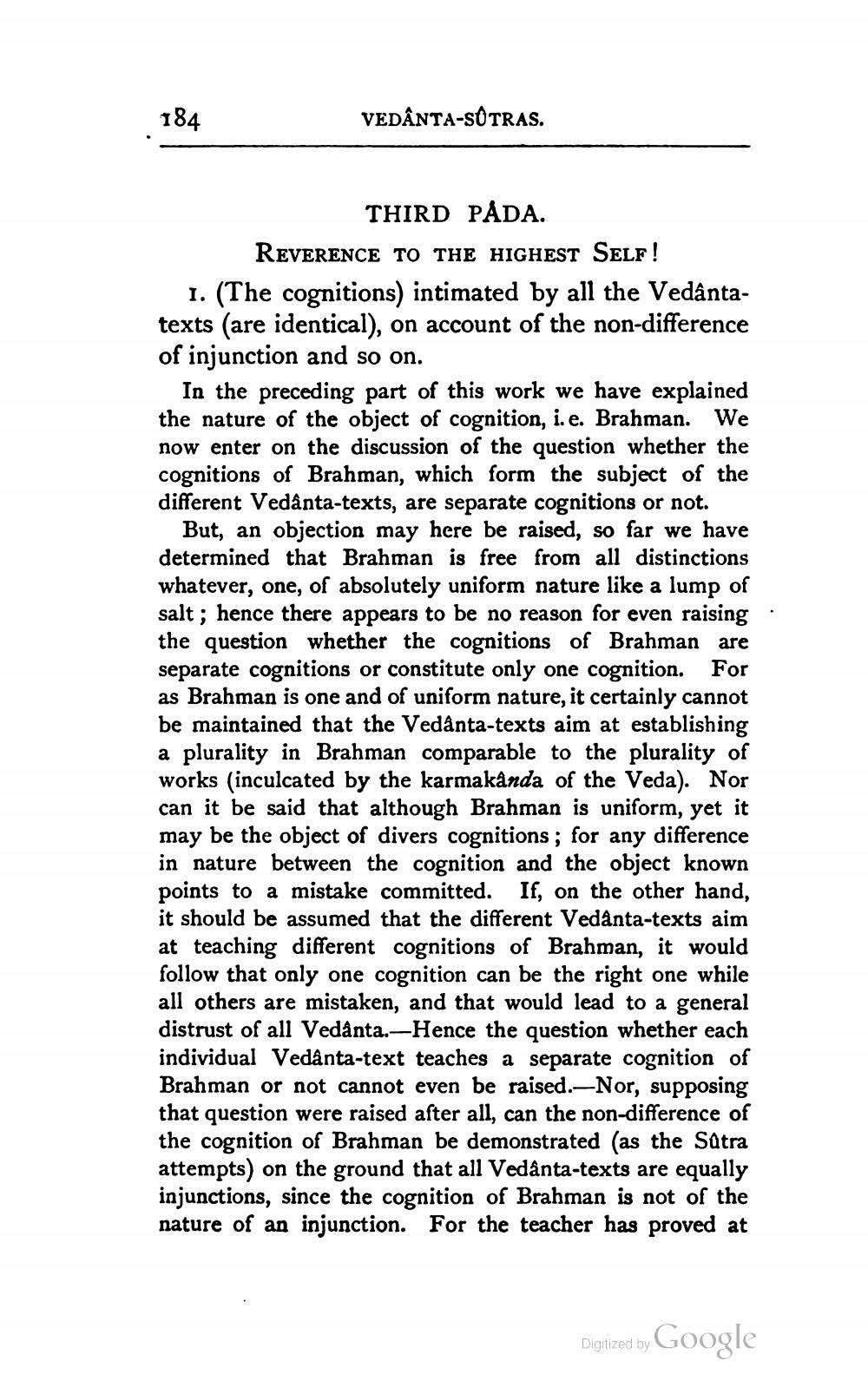________________
184
VEDÂNTA-SÓTRAS.
THIRD PÅDA. REVERENCE TO THE HIGHEST SELF! 1. (The cognitions) intimated by all the Vedantatexts (are identical), on account of the non-difference of injunction and so on.
In the preceding part of this work we have explained the nature of the object of cognition, i.e. Brahman. We now enter on the discussion of the question whether the cognitions of Brahman, which form the subject of the different Vedanta-texts, are separate cognitions or not.
But, an objection may here be raised, so far we have determined that Brahman is free from all distinctions whatever, one, of absolutely uniform nature like a lump of salt; hence there appears to be no reason for even raising. the question whether the cognitions of Brahman are separate cognitions or constitute only one cognition. For as Brahman is one and of uniform nature, it certainly cannot be maintained that the Vedanta-texts aim at establishing a plurality in Brahman comparable to the plurality of works (inculcated by the karmakanda of the Veda). Nor can it be said that although Brahman is uniform, yet it may be the object of divers cognitions; for any difference in nature between the cognition and the object known points to a mistake committed. If, on the other hand, it should be assumed that the different Vedanta-texts aim at teaching different cognitions of Brahman, it would follow that only one cognition can be the right one while all others are mistaken, and that would lead to a general distrust of all Vedanta.--Hence the question whether each individual Vedânta-text teaches a separate cognition of Brahman or not cannot even be raised.-Nor, supposing that question were raised after all, can the non-difference of the cognition of Brahman be demonstrated (as the Satra attempts) on the ground that all Vedanta-texts are equally injunctions, since the cognition of Brahman is not of the nature of an injunction. For the teacher has proved at
Digitized by Google




